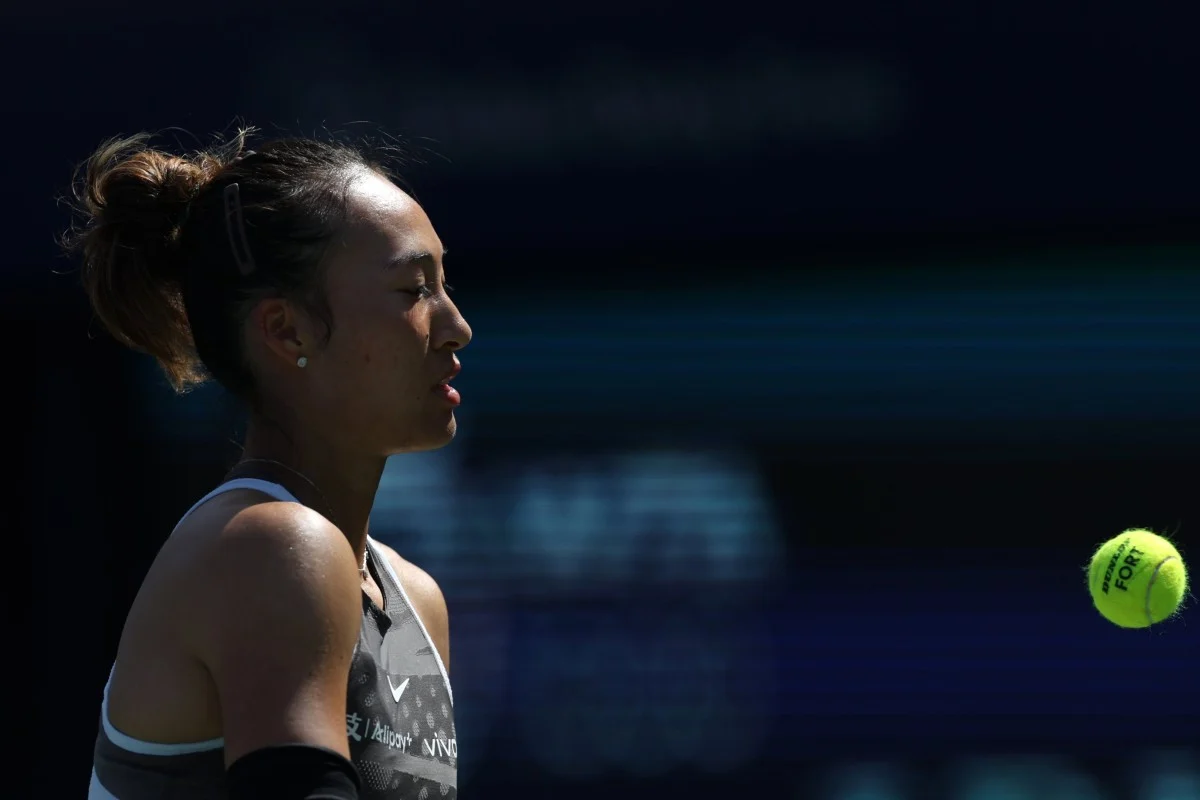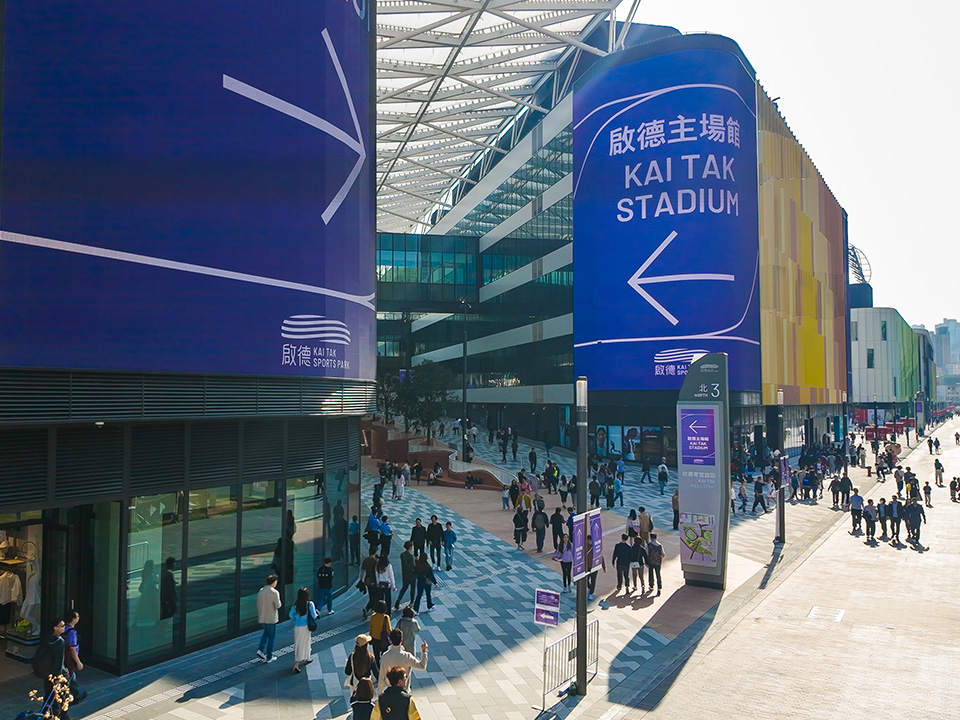China Media and Entertainment Weekly News Bulletin – ISSUE 38 Week of 17 February 2025
(1) Adrian Cheng and JAKOTA Capital invest US$100m in Duanju market while New World Development faces financial turmoil
Hong Kong entrepreneur Adrian Cheng and Swiss-based JAKOTA Capital AG have invested US$100 million in Duanju Corp to capitalize on Asia’s booming micro-drama market, while Cheng’s family-controlled New World Development grapples with a US$19.7 billion loss and US$192.8 billion debt crisis.
(2) Tencent testing DeepSeek to add China’s hottest AI technology to its Weixin super app
Tencent is integrating DeepSeek’s cost-effective AI model into its Weixin app in China, enhancing search capabilities and challenging global tech giants while navigating domestic regulatory constraints.
(3) China approves RedNote’s AI translation along with 5 other models
China’s internet regulator has approved six new generative AI services, including RedNote’s translation tool, amid growing competition in the sector and regulatory scrutiny tied to U.S.-China tech tensions.
(4) NetEase Cloud Music reports 23.1% jump in music revenue for 2024 as profits soar
NetEase Cloud Music’s 2024 revenue jumped 23.1% to $743.5M, fueled by subscription growth and cost efficiencies, as it shifts focus from declining social entertainment services to premium music and audio content.
(5) Fan Bingbing’s High-Profile Return at Berlin Film Festival Amid Past Controversies
Chinese actress Fan Bingbing, once entangled in a tax scandal, reestablishes her international presence as a jury member at the 75th Berlin Film Festival, receiving prominent recognition and a meeting with German Chancellor Olaf Scholz.
(6) Nicholas Tse’s HK$20M Concert Sells Out Instantly, Sparks Scalping Frenzy
Nicholas Tse’s HK$20 million concert series sold out in minutes, with scalpers inflating prices to HK$170k, as the star returns to Hong Kong’s stage after 25 years with a futuristic, fan-focused production.
(7) Postponement of Barbie Hsu’s Burial Sparks Family Adjustments and Public Reactions
The burial of Taiwanese actress Barbie Hsu has been delayed as her husband, DJ Koo, seeks a dedicated memorial site.
(8) Chinese Olympic champion Zheng Qinwen crashes out of Dubai event for third loss in a row
World No 8 seemed set for easy win over Peyton Stearns but ran out of ideas in the deciding set, failing to convert her break point chances.
(9) Zhou Qi played in China’s last National Games for Liaoning
Chinese basketball star Zhou Qi has switched allegiance from Liaoning to Sichuan for the upcoming National Games, sparking controversy among fans.
(10) Michelle Wai’s Lavish Wedding Draws Emperor Entertainment Stars, Reveals Surprise Childhood Connection
Hong Kong actress Michelle Wai married doctor Kenley Chau in a star-studded ceremony attended by Emperor Entertainment’s top brass and artists, highlighted by a nostalgic reunion between Charlene Choi (Ah Sa) and kindergarten classmate Rosa Maria Velasco.
(11) Actors Please Take Your Places Season 3 Premieres with Star-Studded Mentorship and Industry Insights
The third season of Tencent Video’s acting competition show Actors Please Take Your Places debuts with directors Chen Kaige and Zhang Ziyi as lead mentors, introducing innovative “actor track” challenges and revealing raw truths about the entertainment industry.
(12) Kai Tak Sports Park Opening Ceremony: Star Lineup, Affordable Tickets, and Live Broadcast Controversy
Kai Tak Sports Park’s March 1 opening gala will feature top performers and athletes, with 8,500 affordable tickets available amid the notable absence of the “Four Heavenly Kings” and a controversial decision to withhold live TV broadcasts.
(1) Adrian Cheng and JAKOTA Capital invest US$100m in Duanju market while New World Development faces financial turmoil

(Photo Credit: Dimsum Daily)
Hong Kong entrepreneur Adrian Cheng has partnered with Swiss investment firm JAKOTA Capital AG to invest US$100 million in Duanju Corp, a venture targeting the booming Asian micro-drama market. The move comes as Cheng’s family-controlled New World Development (NWD) grapples with a US$19.7 billion loss and US$192.8 billion debt, leading to Cheng’s resignation as CEO in September 2024. Duanju Corp, set to launch in March 2025, aims to capitalize on the popularity of short-form episodic content (80–100 episodes under two minutes each) dominating Asian mobile platforms and challenging Western streaming giants like Netflix.
Duanju Corp will acquire minority stakes in U.S.-listed Mega Matrix (owner of FlexTV, a Duanju platform) and South Korea’s Neorigin, a gaming and content firm. Cheng emphasized leveraging JAKOTA’s regional expertise to position Asian cultural exports in Western markets. The venture targets monetization through subscriptions and ads, tapping into a mobile-first audience. JAKOTA’s focus on Japan, Korea, Taiwan, and Hong Kong aligns with Cheng’s vision to drive “Asian innovations in technology and media” globally.
While Cheng pivots to media, NWD faces severe financial strain, with its market value plummeting and major banks rejecting its shares as collateral. Analysts view Cheng’s Duanju bet as a strategic shift away from NWD’s troubled real estate portfolio, underscoring his commitment to the US$3 trillion cultural industry. The move highlights growing investor interest in Asia’s digital content sector amid traditional industries’ struggles.
News Source: https://www.dimsumdaily.hk/adrian-cheng-and-jakota-capital-invest-us100m-in-duanju-market-while-new-world-development-faces-financial-turmoil/
(2) Tencent testing DeepSeek to add China’s hottest AI technology to its Weixin super app

(Photo Credit: Unwire.hk)
Tencent Holdings is beta-testing the integration of DeepSeek’s AI model into its Weixin super app, offering users an “AI Search” feature alongside its proprietary Hunyuan model. The feature, currently available only on the mainland China version of Weixin (not WeChat), allows free access to DeepSeek-R1, an open-source reasoning model lauded for rivaling OpenAI and Google’s tools at lower costs. The move could bring advanced AI capabilities to Weixin’s 1.3 billion monthly active users, enhancing services from social networking to payments.
Released on January 20, DeepSeek-R1 has gained attention for its cost efficiency and performance, challenging global AI leaders. Tencent’s adoption underscores China’s push to integrate cutting-edge AI into everyday apps, leveraging Weixin’s vast ecosystem. The beta test enables users to query complex topics directly within the app, merging AI-driven search with Weixin’s existing functionalities like document sharing, video streaming, and e-commerce.
By embedding DeepSeek, Tencent aims to diversify its AI offerings and retain dominance in China’s competitive tech landscape. The partnership positions Weixin as a hub for AI-powered services, potentially setting a precedent for other super apps. However, the exclusion from WeChat highlights geopolitical sensitivities, as Tencent navigates regulatory environments while expanding its AI reach domestically.
News Source: https://www.scmp.com/tech/big-tech/article/3298883/tencent-testing-deepseek-add-chinas-hottest-ai-technology-its-weixin-super-app?module=perpetual_scroll_0&pgtype=article
(3) China approves RedNote’s AI translation along with 5 other models

(Photo Credit: Getty Imagess)
Shanghai’s Cyberspace Administration of China (CAC) has greenlit six new generative AI models for public use, including RedNote’s translation service, Xiaohongshu Fanyi, developed by the social platform’s parent company, Xingyin Information Technology. The approval follows speculation that RedNote may have initially launched its AI-powered translation tool in January 2025 without regulatory clearance, capitalizing on a surge in overseas users amid fears of a TikTok ban in the U.S. RedNote’s in-app translation feature, rolled out as American TikTok users sought alternatives ahead of a January 19 divestment deadline, contributed to its rapid global growth.
Among other approved services is an AI assistant for Shanghai’s Global Developer Conference, set to feature Chinese AI startup DeepSeek, which recently gained attention for its cost-efficient, high-performance models. Over 300 large language models (LLMs) have now been registered in China since Beijing enacted strict generative AI regulations in August 2023, requiring platforms to pass security reviews before public release. The CAC’s Shanghai branch alone has approved 74 LLMs to date, reflecting the country’s accelerated push to lead in AI development under tightly controlled conditions.
The approvals highlight China’s balancing act between fostering AI innovation and maintaining regulatory oversight. RedNote’s rise as a potential TikTok alternative underscores how geopolitical tensions—such as U.S. pressure on ByteDance—are reshaping global tech competition. Meanwhile, DeepSeek’s upcoming conference appearance signals China’s ambition to showcase homegrown AI advancements, even as companies navigate compliance with evolving rules aimed at curbing risks like misinformation and data breaches.
News Source: https://www.scmp.com/tech/big-tech/article/3299451/china-approves-rednotes-ai-translation-along-5-other-models
(4) NetEase Cloud Music reports 23.1% jump in music revenue for 2024 as profits soar

(Photo Credit: photo_gonzo/Shutterstocke)
NetEase Cloud Music (NCM), China’s second-largest music streaming platform, reported a 23.1% YoY surge in revenue from online music services to RMB 5.35 billion ($743.5 million) in 2024, driven by a growing subscriber base. Paid subscriptions rose 22.2% to RMB 4.46 billion ($619.8 million), though average revenue per user dipped slightly. While the company withheld updated subscriber figures, it emphasized enhanced premium features, including an expanded content library, personalized recommendations, and user-generated content (UGC) initiatives. Strategic partnerships with NetEase’s gaming division further diversified music consumption scenarios.
Profitability soared as gross profit jumped 27.5% to RMB 2.68 billion ($372.4 million), with gross margin climbing to 33.7% (vs. 26.7% in 2023) due to stringent cost controls. Adjusted net profit nearly doubled (+107.7% YoY) to RMB 1.70 billion ($236.3 million). However, revenue from social entertainment services—historically tied to online gambling—plunged 26.2% to RMB 2.59 billion ($359.9 million), reflecting NCM’s pivot toward core music offerings.
Looking ahead, NCM plans to prioritize premium subscriptions and interactive features, mirroring strategies by rivals like Spotify. Long-form audio content (podcasts/audiobooks) saw user listening time grow 35.8%, signaling diversification beyond music. The company aims to deepen community engagement and expand monetization through innovative tools, cementing its focus on sustainable growth in China’s competitive streaming market.
News Source: https://www.musicbusinessworldwide.com/netease-cloud-music-reports-23-1-jump-in-music-revenue-for-2024-as-profits-soar/
(5) Fan Bingbing’s High-Profile Return at Berlin Film Festival Amid Past Controversies

(Photo Credit: NetEase)
Fan Bingbing, 43, marked her return to the global spotlight as a jury member at the 75th Berlin Film Festival. Positioned centrally among the panel, she captivated attention with a solo red-carpet walk, exclusive media coverage, and a seven-minute focus by official cameras. Her refined, East Asian-inspired gown and poised demeanor reignited her reputation as a “Red Carpet Queen,” with audiences and media applauding her timeless elegance and self-assurance.
The event underscored her resilience following her 2018 tax evasion controversy, which led to her exclusion from China’s entertainment industry. Despite setbacks domestically, she has prioritized international projects, including film roles and her beauty brand, FanBeauty. Notably, German Chancellor Olaf Scholz personally welcomed her at the Federal Chancellery, where she stood out as the only Asian attendee in official photographs, highlighting her sustained global influence.
Fan’s participation in the prestigious festival—one of the “Big Three” alongside Cannes and Venice—signals her restored standing abroad. While she remains marginalized in China, her overseas endeavors, such as roles in international films and advocacy efforts in Southeast Asia, reflect a strategic career shift. Observers and fans debate whether this signals a lasting comeback, but her Berlin appearance reaffirms her enduring impact on global cinema.
News Source: https://www.backchina.com/news/2025/02/17/958442.html
(6) Nicholas Tse’s HK$20M Concert Sells Out Instantly, Sparks Scalping Frenzy

(Photo credit: Weibo@锋味)
Hong Kong superstar Nicholas Tse will headline three “Evolution Nic Live” concerts at Kai Tak Sports Park from 24th–26th April 2025, marking his first major local performance in 25 years. Tickets for all shows sold out within 30 minutes of release, with scalpers reselling seats at up to HK$170,000 each—prompting Tse to publicly warn fans against unauthorized purchases. The production features a futuristic HK$20 million stage design resembling a spaceship, complete with LED-lit staircases and immersive visuals.
Tse reportedly waived his performance fee to prioritize cutting-edge production quality, emphasizing the concerts as a “thank you” to loyal fans. Despite calls for additional dates, tight scheduling at Kai Tak—which will host Mayday and Jay Chou in subsequent months—makes expansions unlikely. Organizers Emperor Entertainment acknowledged the overwhelming demand and are exploring solutions to accommodate more attendees.
The singer-actor teased the event on social media, posting a photo with four fingers raised (signifying “April”) and thanking fans for their explosive support. The concerts highlight Tse’s enduring star power and set a new benchmark for Hong Kong live entertainment, blending high-tech staging with nostalgic appeal for his decades-long career.
News Source: https://www.dimsumdaily.hk/nicholas-tses-concert-stage-costs-hk20-million-as-tickets-sell-out-in-minutes/
(7) Postponement of Barbie Hsu’s Burial Sparks Family Adjustments and Public Reactions

(Photo Credit: China Times)
The burial of Barbie Hsu (大S) , who passed away at 48 due to flu-related pneumonia during a family trip to Japan, has been postponed. Initially planned as an eco-friendly tree burial in Taiwan per her wishes, the delay stems from her husband DJ Koo (具俊曄)’s desire for a private, permanent memorial site where he and her family can visit her. Hsu’s ashes, returned to Taipei by Koo and her sister Dee Hsu (小S), will now await a new location approved by the family, emphasizing privacy during the eventual ceremony.
Meanwhile, Hsu’s former partner Vic Chou (周渝民) made his first public appearance since her death, refusing to share personal sentiments. He stressed that mourning should remain private and urged focus on her grieving family. Separately, a fake social media account impersonating Chou posted tributes to Hsu, which he dismissed as fraudulent, reiterating his long-standing avoidance of online platforms.
DJ Koo has paused all professional activities indefinitely, while Dee Hsu has taken a six-month hiatus from her TV show, temporarily replaced by Sandy Wu (吳姍儒). Barbie’s ex-husband Wang Xiaofei (汪小菲), who previously drew attention for emotional public outbursts in Taipei, returned to Taiwan with his current wife Mandy Ma (馬筱梅), avoiding media questions. The family’s adjustments and public figures’ reactions underscore the ongoing sensitivity surrounding Hsu’s passing.
News Source: https://news.mingpao.com/pns/娛樂/article/20250221/s00016/1740069378319/大s下葬延期-具俊曄盼覓地拜愛妻-舊愛周渝民首露面拒公開感受
(8) Chinese Olympic champion Zheng Qinwen crashes out of Dubai event for third loss in a row

(Photo Credit: EPA-EFE)
Chinese Olympic champion Zheng Qinwen faced a disappointing exit from the Dubai Duty Free Tennis Championships, marking her third consecutive loss. Zheng, ranked World No. 8, was defeated by American Peyton Stearns in a three-set match, 3-6, 6-4, 6-4. Despite a strong start, Zheng struggled to maintain her momentum, failing to convert crucial break points in the deciding set.
This loss follows Zheng’s unexpected second-round exit from the Australian Open last month, highlighting her recent struggles to find the form that propelled her to a career-high ranking of fifth in the world in 2024. In the Dubai match, Zheng initially dominated, breaking Stearns’ serve in the first and last games of the opening set. However, Stearns’ resilience and Zheng’s inability to capitalize on opportunities led to the latter’s downfall.
Zheng’s early performance was promising, winning 10 out of her first 11 service points and moving Stearns around the court effectively. Yet, as the match progressed, Zheng’s performance waned while Stearns improved, ultimately securing the victory. This series of losses poses a challenge for Zheng as she aims to regain her top form and confidence on the court.
News Source: https://www.scmp.com/sport/tennis/article/3299330/chinese-olympic-champion-zheng-qinwen-crashes-out-dubai-event-third-loss-row?module=top_story&pgtype=section
(9) Zhou Qi played in China’s last National Games for Liaoning

(Photo Credit: Xinhua)
Chinese basketball star Zhou Qi, who previously played for Liaoning in the last National Games, has now been acquired by Sichuan for the upcoming event. Zhou, a former Houston Rockets player, accepted a 6 million yuan (approximately US$826,000) deal to represent Sichuan in the Games, which will be co-hosted by Hong Kong, Macau, and Guangdong in November1. This move has added Zhou to Sichuan’s roster, which already includes national team players Hu Jinqiu, Sun Minghui, and Zhao Yanhao.
The decision has stirred controversy among basketball fans, with many questioning the logic and fairness of allowing players to switch teams for financial incentives. Some fans expressed confusion over Zhou’s eligibility, noting that he was originally from Henan and trained in Liaoning. The practice of “buying” players for the National Games has led to debates about the integrity and purpose of the competition, with critics arguing that it undermines the spirit of the event.
Despite the backlash, Sichuan’s acquisition of Zhou Qi highlights the competitive nature of the National Games and the lengths to which teams will go to secure top talent. As the Games approach, the focus will be on how these high-profile player transfers impact the competition and whether they lead to calls for reforms in the rules governing player eligibility and team composition.
(10) Michelle Wai’s Lavish Wedding Draws Emperor Entertainment Stars, Reveals Surprise Childhood Connection

(Photo Credit: Singtao Headline)
Michelle Wai exchanged vows with Kenley Chau in a church ceremony on February 16, followed by a banquet at an Admiralty hotel. Emperor Entertainment chairman Albert Yeung and his wife, Florence Yeung, led the guest list, with Florence affectionately holding Michelle’s hand throughout the event. A group photo shared by concert director Yvonne Fung featured icons like Nicholas Tse, Joey Yung, Louis Koo, and Charlene Choi, drawing comparisons to a Hong Kong Film Awards gathering.
The wedding unveiled a surprising bond: actress Rosa Maria Velasco (known for Breaking the Curse) revealed she and Ah Sa were kindergarten classmates. The pair recreated a childhood photo pose, sharing side-by-side images of their younger and present-day selves on social media. Ah Sa humorously captioned her post “Kindergarten Besties Forever,” sparking fan delight over their enduring connection.
Guests received high-end British-branded gifts, while Michelle dazzled in a sleek white gown and later changed into a figure-hugging evening dress, playfully wiping her husband’s mouth during the banquet. Emperor’s artist management director Mani Fok praised the couple’s chemistry as “sweetness overload,” capping an evening blending glamour, nostalgia, and heartfelt tributes.
News Source: https://www.stheadline.com/realtime-entertainment/3429601/
(11) Actors Please Take Your Places Season 3 Premieres with Star-Studded Mentorship and Industry Insights

(Photo Credit: Tencent Video)
Tencent Video’s acclaimed acting reality show Actors Please Take Your Places Season 3 premiered on February 14, 2025, featuring directors Chen Kaige and Zhang Ziyi as lead mentors. The show aims to create a platform for actors at various career stages to refine their skills, identify their strengths, and navigate industry challenges. With the theme “To Take Your Seat, First Immerse in the Role,” this season emphasizes authenticity in the film industry ecosystem, introducing a “track system” to help actors align with specialized career paths.
The mentor panel includes international additions like French actress Isabelle Huppert and industry veterans such as Kara Hui and Francis Ng, who provide targeted guidance. A “market mentor,” producer Yang Xiaopei, offers insights into commercial demands. The diverse cast ranges from newcomers like Ma Qiyue and Zhang Wanying to crossover stars like comedian Chuina Lisa, highlighting varied talent facing rigorous critiques. Contestants undergo challenges like the “Performance City” improvisation segment, set in a民国-era street, to test adaptability and emotional depth.
The season opens with bold confrontations of industry taboos, including discussions about plastic surgery and role replacements. In one early episode, idol-turned-actor Zhang Jiayuan faces skepticism for lacking foundational skills in the “Fresh Campus Guy” track, underscoring the show’s focus on growth. Chen Kaige stressed the “10,000-hour rule” for mastering acting, while Zhang Ziyi urged prioritizing craft over fame. By blending harsh critiques with mentorship, the show dissects the pressures and triumphs of acting careers, positioning itself as a pivotal 2025 cultural conversation starter.
News Source: https://i.ifeng.com/c/8h376PJ12r1
(12) Kai Tak Sports Park Opening Ceremony: Star Lineup, Affordable Tickets, and Live Broadcast Controversy

(Photo Credit: Hong Kong Tourism Board)
Hong Kong’s Kai Tak Sports Park will debut with a grand opening ceremony on March 1, featuring martial arts icon Donnie Yen, singers Joey Yung and MC Cheung Tin-fu, alongside athletes such as Olympic fencer Vivian Kong. While the event boasts performances by mainland Chinese stars like Li Yuchun and Zhang Jie, the absence of Cantopop’s legendary “Four Heavenly Kings” has drawn public disappointment. A total of 33,600 tickets are allocated, with 8,500 priced at HK$10 (including a HK$9 processing fee) set for public sale on February 21, while the remainder will be distributed to community groups and officials. Proceeds from ticket sales will go to charity.
The government emphasizes accessibility, urging attendees to collect physical tickets between February 27 and March 1 to avoid delays. A 63,000-person rehearsal tested the venue’s AI crowd-management system, though event costs—covering logistics, staging, and performer fees—remain undisclosed. A delayed broadcast of the ceremony will air on local TV channels at 9:30 PM, edited for “programming needs.” Cultural Secretary Roxanne Ip acknowledged frustrations over the missing “Four Heavenly Kings” but hinted at future collaborations.
Controversy has erupted over the lack of live TV coverage, with officials citing “technical constraints” and editing requirements. Legislator Regina Ip criticized the explanation as unconvincing, noting Hong Kong’s proven ability to livestream large-scale events like Coldplay concerts. While state broadcaster CCTV is producing the ceremony, it will not air live either. Public dissatisfaction grows as the delayed broadcast is seen as undermining transparency and public engagement, sparking debates about the government’s prioritization of image control over audience inclusivity.


